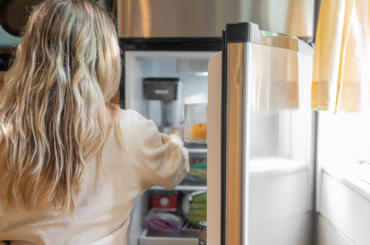Anxiety is the most common mental health issue in the United States, affecting 40 million adults or 18.1 percent of the population. Parents living with anxiety disorders are faced with a unique challenge, as they must navigate all of the same milestones and struggles that all parents do, while also managing their own anxiety and being mindful that they aren’t transferring that anxiety to their children.
Children model their own coping skills after those of the people who raised them, so how parents handle their own anxieties will have a lasting impact on their kids. This can have both negative and positive consequences, depending on how effectively a parent is able to manage and communicate their own anxious thoughts and feelings.
Having anxiety as a parent isn’t necessarily a bad thing—it can actually be a good opportunity to share some helpful insight and anxiety management skills with your kids. Here are five ways you can model positive coping strategies and avoid transferring your own anxiety to your children.
1. Talk openly about your anxiety.
A parent’s first instinct might be to try to suppress or ignore their anxiety around their kids to protect them. However, kids will still pick up on your anxious feelings from body language and other nonverbal communication, so it’s actually more helpful to communicate what you’re feeling. Talk with confidence about your fears to show them that it’s not shameful to feel anxiety. For example, you can say, “I’m feeling nervous about you taking the bus by yourself, and I also know you’re ready for the responsibility.”
2. Check in with them regularly.
Making space in your week for a regular mental health check-in with your kids is a great way to promote healthy coping. Encourage kids to talk about what they’re feeling most worried or anxious about, and brainstorm with them some ways to manage their stress. Try using these five questions as a starting point for your mental health check-in. Tweens and teens might be more resistant to opening up, so you might start with some conversation starters geared to their age group to get the conversation rolling. Then you can use special phrases to comfort your kids and prompt them to think more deeply about what they’re feeling.
3. Revisit your own coping strategies.
Take a moment to think through your anxiety triggers and your typical responses to anxiety-inducing situations. Are your coping strategies mostly helpful or harmful? Some people might lose their temper, withdraw from others, or act out in harmful ways when feeling anxious. Are there other strategies you could try using in tough moments that might be helpful to model for your kids? Some healthier coping skills include talking it out with a trusted friend or therapist, journaling or doing something creative, taking a walk, or doing some deep breathing. Make a plan in advance for which strategies to try next time you’re feeling anxious.
4. Reframe anxiety—it’s not all bad.
Anxiety has such a negative connotation that it can be difficult to think about it in a positive light, but the reason we feel anxiety in the first place is self-protective. Anxiety is a biological response to a perceived threat, and is often triggered as part of the fight-or-flight response. This can be helpful when the threat is a real danger to someone’s safety or wellbeing. However, people with anxiety disorders often experience anxiety as a response to thoughts or other triggers that are not directly threatening, which can lead to mental and physical distress. On the other hand, anxiety can also contribute positively to someone’s sense of empathy, leadership, and situational awareness, since people with anxiety are often highly aware, critical thinkers who can relate well to others facing anxiety or emotional distress. Talking through some of the biological mechanisms and silver linings of anxiety with kids can diffuse some of the negative feelings that may come along with navigating an anxiety disorder within your family.
5. De-stress as a family.
You don’t need to wait for an anxious moment to arise to tackle stress together as a family. Regularly practicing self-care together can keep stress levels low and make kids more resilient. Try some age-targeted mindfulness activities, or start this 30-Day Family Self-Care Challenge together! You can practice the same coping strategies for anxiety with little kids that you use for calming tantrums, like five-finger breathing and grounding techniques. For older kids who might roll their eyes at those strategies, you can try aged-up tools for anxiety, like role-reversals and fact-checking negative thoughts. Even just building a 5-minute dance party or a walk around the block into your daily routine can help your family manage stress and anxiety before they start.
The most important thing to keep in mind as a parent with anxiety is that your kids will absorb what you model for them. So being aware of your triggers, reactions, and coping skills will help you avoid passing any negative anxious tendencies onto your children. Keeping communication open in the family about how anxiety impacts you and those around you can benefit the kids in your life who are still learning to manage their own emotions.







